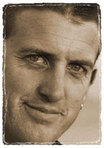Behind the words: Plot and Themes in the Tale of the Lifesong
After reading and reviewing both books in my epic fantasy series, David Wagner threw some interesting challenges my way. Join us as we delve into the world behind the words. Required reading for this assignment: The Riddler's Gift and Second Sight. Deeper into the Tale of the Lifesong we go!
 DW: Did you have the basic arc for the whole tale (From Riddler's through Second Sight) in mind from the outset, or did you finish Riddler's Gift first, and then regroup and wonder where you could go from there, for a second book?
DW: Did you have the basic arc for the whole tale (From Riddler's through Second Sight) in mind from the outset, or did you finish Riddler's Gift first, and then regroup and wonder where you could go from there, for a second book?
Holding onto a master plan when the story is about developing wizards?
This is impossible, because they have the power to change things as they develop, in ways you cannot plan. I wanted to follow their journey, rather than dictate it, and so I had to give them freedom.
If I shoe-horned them into a pre-defined pattern, what would I learn? The only way to retain the integrity of the story was to imagine myself in their position, given their powers, and see what they would do.
So the plot is entirely organic.
This makes my writing process very slow. My coffee generally goes cold. After some time, I am suddenly blind-sided by vision. Occasionally, for fun, I'd finish a chapter and then Zarost would propose 'How can it possibly get harder? What's the worst thing that could happen?' Then I'd write that bit, find myself even deeper and ask 'how the hell do we get out of here?' That could take a few days to solve, while Zarost chuckled to himself. Sometimes, I followed my curiosity, as in 'What's happening with Ashley?' If I was really lucky, I'd hear voices, and take dictation – those scenes came out with special resonance and explosive speed.
It got progressively harder to write, until by the fourth movement of Second Sight, I was really beginning to understand Ametheus and was searching for a way to find peace through annihilation. For the record, I didn't do anything to the chicken, but I enjoy peri-peri.
DW: On the over-arching theme of Chaos vs Order. Did you start with that theme and contemplate which genre would make sense, as far as how best to express your thoughts on it? Or did you decide to write a fantasy novel, and the theme evolved out of the process of fleshing out the characters and the world?
The first question presumes that I planned to express a certain theme. I didn't; I witnessed it.
You might say it grew out of the world as I explored it, although the three axis magic system was an early concept that comes from being fascinated with three-dimensional mathematics. So Dark and Light were pitted against each other on the first axis in the simplified environment of Eyri, and Chaos and Order were natural adversaries on the third axis in Oldenworld.
I wanted to express the idea of different organizations of the same power, and the freedom of escaping the confines of indoctrination along a certain axis. So far, the second axis is largely unexplored (that of Matter/Energy), and the Lifesong defies classification within the science of the times. But these were very far in the background of my thoughts as I wrote the Lifesong series.
You will find many themes in the Lifesong, depending on what you bring to it as a reader, precisely because I wrote it without the intention to prove a point or present a particular view. I aim for revelation (for myself) rather than trying to disguise some kind of religion (for others).
The inspiring video you posted of Thijme Termaat (I Paint) expresses this perfectly.
You might be able to find themes in his collection. Likewise, the Lifesong fantasy series is a collection of mental paintings. I express what comes through me. The theme is not intended, it is experienced.
So although things like theme, subtext, context and conceptual analysis might make sense in an English literature class, it makes no sense to me as a writer. I deliberately walked a different path for the Lifesong. It has no literary aspirations. It means only what it means to you. It is a creation, rather than a construction.
My life has been a continual search to raise my consciousness, to become, somehow, more. Writing is the best path I have found, given my nature. I suppose I could write in any genre, but I find my muse tends to lead me down pathways that involve magic, music and freedom.
DW: Did you ever consider ending Second Sight with a "Cleansing of the Shire" type of epilogue, where we could return to Eyri to pick up some of the loose ends?
I believe in ending a story when it is done. Epilogues are what come after the story, and I think it's best to avoid them. A little lingering mystery is good. There are threads that continue beyond Second Sight, and some things I chose not to conclude because once the story gets going they would slow things down and unravel the intensity of what was happening Oldenworld. They can be woven into a sequel, when Tabitha returns to Eyri and finds that things are … altered. So I've left these threads to use if they add something to the conflict of the next book, rather than weakening the climax of Second Sight by 'tying off loose ends'.



